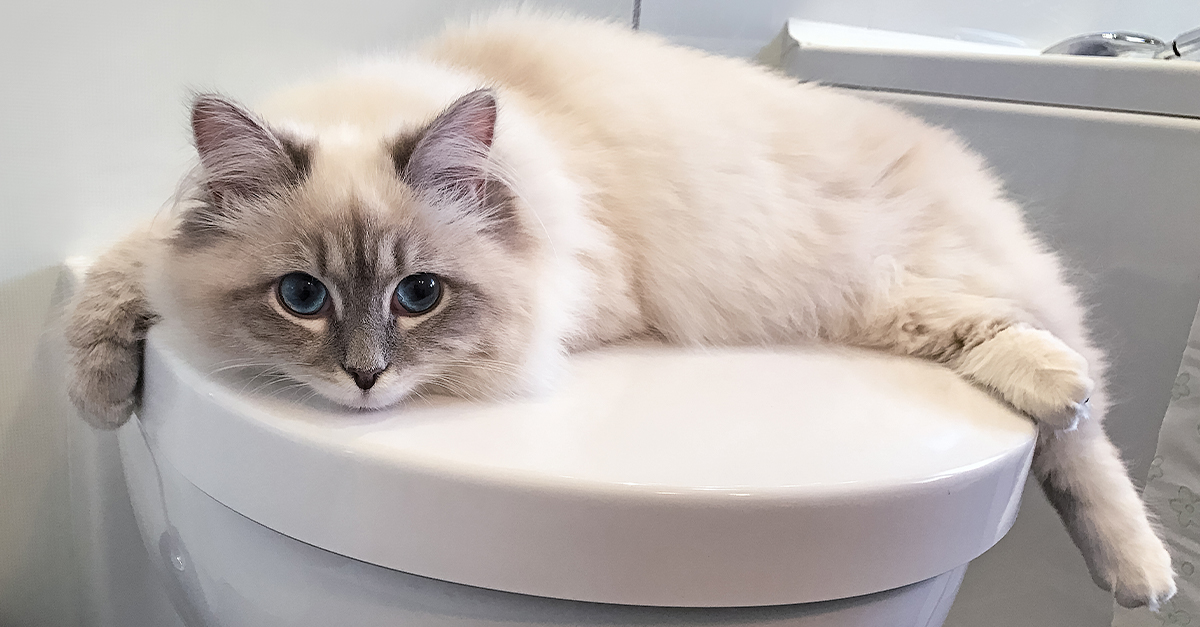Avoid Flush Cat Poop Down Your Toilet - Maintain Your House's Plumbing System
Avoid Flush Cat Poop Down Your Toilet - Maintain Your House's Plumbing System
Blog Article
Just how do you actually feel in relation to Can You Flush Cat Poop Down The Toilet??

Introduction
As pet cat owners, it's necessary to bear in mind just how we deal with our feline friends' waste. While it might seem convenient to purge feline poop down the commode, this technique can have destructive repercussions for both the environment and human wellness.
Alternatives to Flushing
Luckily, there are safer and much more liable methods to deal with pet cat poop. Think about the following choices:
1. Scoop and Dispose in Trash
The most usual technique of disposing of pet cat poop is to scoop it right into a naturally degradable bag and toss it in the garbage. Be sure to utilize a devoted trash inside story and throw away the waste quickly.
2. Use Biodegradable Litter
Go with naturally degradable feline litter made from products such as corn or wheat. These litters are environmentally friendly and can be securely thrown away in the trash.
3. Hide in the Yard
If you have a yard, take into consideration burying pet cat waste in an assigned location away from veggie gardens and water sources. Be sure to dig deep sufficient to prevent contamination of groundwater.
4. Set Up a Pet Waste Disposal System
Buy a pet waste disposal system particularly designed for feline waste. These systems utilize enzymes to break down the waste, reducing smell and ecological impact.
Health and wellness Risks
Along with ecological concerns, flushing feline waste can also posture wellness threats to people. Feline feces might have Toxoplasma gondii, a parasite that can trigger toxoplasmosis-- a potentially severe disease, particularly for pregnant ladies and people with damaged immune systems.
Environmental Impact
Purging feline poop presents damaging microorganisms and bloodsuckers right into the supply of water, posing a significant threat to marine environments. These contaminants can adversely affect aquatic life and concession water high quality.
Final thought
Accountable animal possession prolongs past providing food and shelter-- it also includes proper waste monitoring. By avoiding flushing feline poop down the bathroom and choosing different disposal methods, we can decrease our ecological footprint and safeguard human health.
Why Can’t I Flush Cat Poop?
It Spreads a Parasite
Cats are frequently infected with a parasite called toxoplasma gondii. The parasite causes an infection called toxoplasmosis. It is usually harmless to cats. The parasite only uses cat poop as a host for its eggs. Otherwise, the cat’s immune system usually keeps the infection at low enough levels to maintain its own health. But it does not stop the develop of eggs. These eggs are tiny and surprisingly tough. They may survive for a year before they begin to grow. But that’s the problem.
Our wastewater system is not designed to deal with toxoplasmosis eggs. Instead, most eggs will flush from your toilet into sewers and wastewater management plants. After the sewage is treated for many other harmful things in it, it is typically released into local rivers, lakes, or oceans. Here, the toxoplasmosis eggs can find new hosts, including starfish, crabs, otters, and many other wildlife. For many, this is a significant risk to their health. Toxoplasmosis can also end up infecting water sources that are important for agriculture, which means our deer, pigs, and sheep can get infected too.
Is There Risk to Humans?
There can be a risk to human life from flushing cat poop down the toilet. If you do so, the parasites from your cat’s poop can end up in shellfish, game animals, or livestock. If this meat is then served raw or undercooked, the people who eat it can get sick.
In fact, according to the CDC, 40 million people in the United States are infected with toxoplasma gondii. They get it from exposure to infected seafood, or from some kind of cat poop contamination, like drinking from a stream that is contaminated or touching anything that has come into contact with cat poop. That includes just cleaning a cat litter box.
Most people who get infected with these parasites will not develop any symptoms. However, for pregnant women or for those with compromised immune systems, the parasite can cause severe health problems.
How to Handle Cat Poop
The best way to handle cat poop is actually to clean the box more often. The eggs that the parasite sheds will not become active until one to five days after the cat poops. That means that if you clean daily, you’re much less likely to come into direct contact with infectious eggs.
That said, always dispose of cat poop in the garbage and not down the toilet. Wash your hands before and after you clean the litter box, and bring the bag of poop right outside to your garbage bins.
https://trenchlesssolutionsusa.com/why-cant-i-flush-cat-poop/
We were made aware of that editorial about How to Dispose of Cat Poop and Litter Without Plastic Bags from someone on another web page. So long as you appreciated our blog posting kindly don't forget to pass it around. Thanks a lot for your time. Please visit our website back soon.
Explore Now Report this page